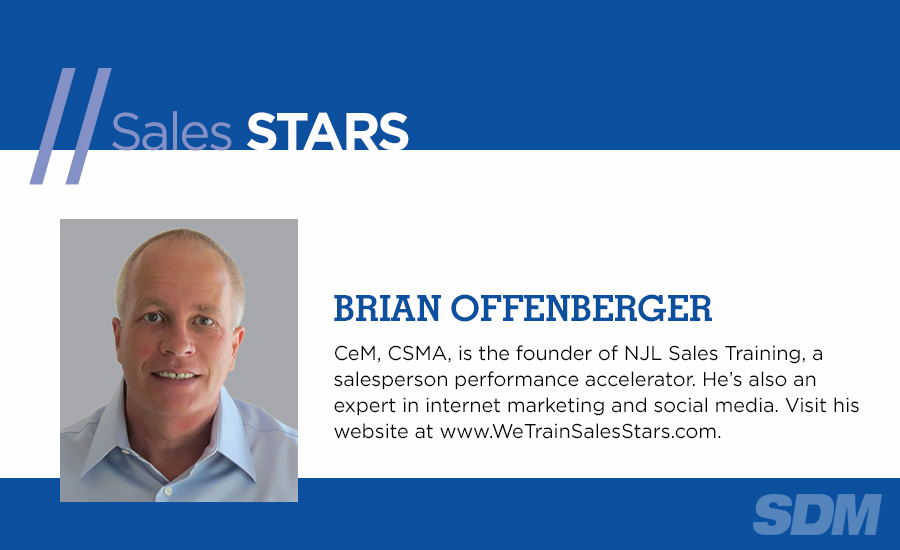Sales Stars
Why Paranoia Is Good for Customer Retention

I’ve been doing some marketing work for cannabis companies, including one that is considered a market leader. This company is the dominant player and set the benchmark against which all others are compared.
Recently they lost several large customers and were in a panic. What made things worse is that they lost the business to a competitor with an inferior product and no way of offering the depth of products and services.
Their sales team had long term relationships with these accounts. They had consistently received superior customer service ratings and their products sold well for retailers.
There was no reason to believe the business with these accounts was in jeopardy — until they got the cancellation notice.
Suddenly, they were on the outside looking in. Deals had been made; contracts had been signed; cash had exchanged hands and products had been shipped. My client was shocked.
I wasn’t. Long-term relationships can breed complacency. And when that happens, a swift kick in the rear is sure to follow.
The competitor that won the business changed the game. They realized they could not win a head-to-head battle under existing terms, so they changed the dynamic.
The competitor knew that the individual stores had the power to make their own decisions. Rather than confront that head on, they changed tactics. They went one level above the individual stores to the corporate team.
They showed the corporate team why different criteria were needed to evaluate product providers. They inserted criteria that played to their strengths. They changed the discussion in such a way that they won the business.
So how do you prevent this kind of situation from happening to you?
You need to be paranoid. You must assume that competitors are out to get you at every turn (because they are).
So, what should you do?
Think like your competitor. Start by identifying your strengths and weaknesses. How do you stack up against your competitors? Be brutally honest. The truth may hurt but losing customers hurts even more.
Think about how you would try to steal your accounts away. Ask questions like:
- What could be done without you knowing?
- What doubts could be planted in the customer’s mind about your company?
- How could they highlight your weaknesses?
- What could they do to change the game?
- Who else might get involved in the decision?
- Which of your accounts are most vulnerable?
I recommend doing this exercise as a sales team. The collective “paranoia” usually uncovers many more weaknesses than one would on their own.
Once you know your areas of weakness, you can address them before you lose more accounts. And be sure to address them with the speed of a sprinter, as your competition is right beside you.
Amazon founder Jeff Bezos said it best, “When the world changes around you and when it changes against you — what used to be a tailwind is now a headwind — you have to lean into that and figure out what to do because complaining isn’t a strategy.”
A little paranoia every now and then can be a good thing. It just might save you some accounts.
Looking for a reprint of this article?
From high-res PDFs to custom plaques, order your copy today!








